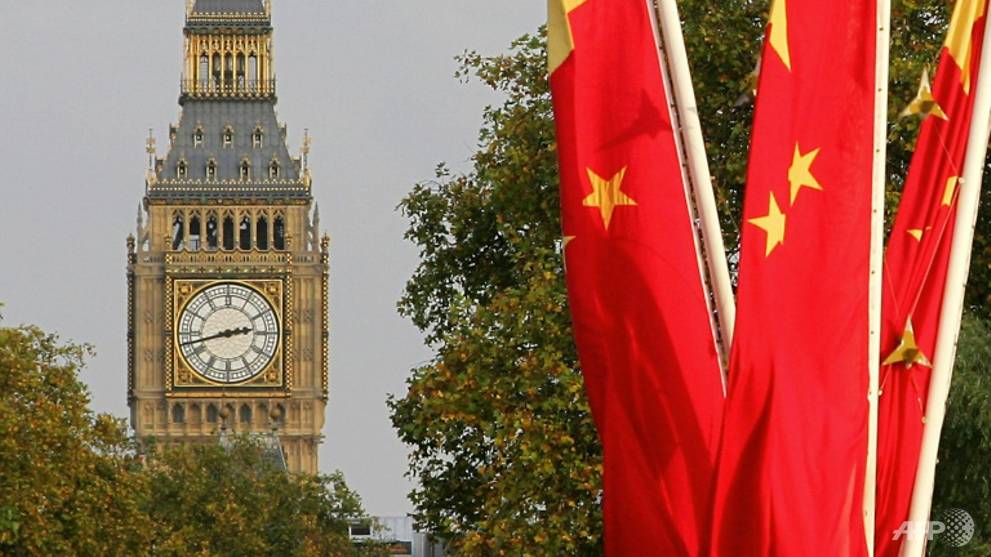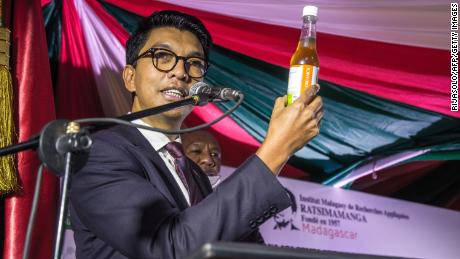
LONDON: Britain's new post-Brexit sanctions regime faces an early test over London's deteriorating relationship with China, as calls mount for it to be used against Beijing officials.
Foreign Secretary Dominic Raab said the government now has the ability to impose sanctions on people involved "in the very worst human rights abuses" around the world.
Advertisement
Advertisement
London is looking to forge a new foreign policy path dubbed "Global Britain" on its own after it quit the European Union in January, leaving it without the combined clout of the 27 remaining member states.
Under the new sanctions regime, restrictions were immediately announced against 49 "notorious" individuals, most of them Russian and Saudi nationals, which immediately drew Moscow's ire and the promise of tit-for-tat action.
But it also prompted calls from prominent members of parliament for the list to be extended to other countries, notably China.
"Most commentators probably thought that Russia would be the case that would test the UK," Richard Whitman, associate fellow of the Europe Programme at the Chatham House think-tank, told AFP.
Advertisement
Advertisement
"The China/Hong Kong case came out of nowhere and has brought a lot of thinking about sanctions further forward."
London and Beijing have been at loggerheads since China passed a controversial new security law for the former British colony of Hong Kong, which prompted Britain to offer refuge to up to three million in the city state.
The relaxing of immigration rules for British National Overseas passport holders and their dependents raised the diplomatic stakes and saw China warn of unspecified "consequences".
WAIT AND SEE MOMENT'
Pressure on Raab is not just coming from headline-grabbing events such as China's treatment of the Muslim Uighur minority, said Whitman.
Lawmakers from both major UK political parties have called for Raab to impose sanctions on Chinese officials in general, and specifically Hong Kong chief executive Carrie Lam.
Such unanimity will make it "very difficult" for Raab to back down, added Whitman.
Emil Dall, a senior research fellow with the RUSI think tank, said any British decision to impose such sanctions was a "wait and see moment".
All eyes are now on the United States to see if it acts first.
Domestic criticism is also being voiced over a decision by the British government to resume arm sales to Saudi Arabia – announced just 24 hours after the first sanctions list.
"How the Foreign Secretary can say on one day that the UK will act as a force for good in the world, standing up for human rights, and then on the next, agree to this moral outrage is just unbelievable," tweeted Britain's only Green Party member of parliament, Caroline Lucas.
"The hypocrisy leaves me lost for words."
MID-ATLANTIC FLAVOUR
The UK's new "independent" sanctions regime is being seen as an indicator of the country's future foreign policy path post-Brexit.
The vision of "Global Britain" could now be more closely aligned with countries such as the United States and Canada rather than the European Union, said Dall.
Whitman said the sanctions may not only have a "mid-Atlantic" flavour, pointing to efforts to forge closer ties with countries such as Australia and Japan.
But the expectation is any sanctions will go hand-in-hand with Britain's new foreign policy priorities.
Dall said they will be "British sanctions with a British flag on them, before it was British sanctions Read More – Source

LONDON: Britain's new post-Brexit sanctions regime faces an early test over London's deteriorating relationship with China, as calls mount for it to be used against Beijing officials.
Foreign Secretary Dominic Raab said the government now has the ability to impose sanctions on people involved "in the very worst human rights abuses" around the world.
Advertisement
Advertisement
London is looking to forge a new foreign policy path dubbed "Global Britain" on its own after it quit the European Union in January, leaving it without the combined clout of the 27 remaining member states.
Under the new sanctions regime, restrictions were immediately announced against 49 "notorious" individuals, most of them Russian and Saudi nationals, which immediately drew Moscow's ire and the promise of tit-for-tat action.
But it also prompted calls from prominent members of parliament for the list to be extended to other countries, notably China.
"Most commentators probably thought that Russia would be the case that would test the UK," Richard Whitman, associate fellow of the Europe Programme at the Chatham House think-tank, told AFP.
Advertisement
Advertisement
"The China/Hong Kong case came out of nowhere and has brought a lot of thinking about sanctions further forward."
London and Beijing have been at loggerheads since China passed a controversial new security law for the former British colony of Hong Kong, which prompted Britain to offer refuge to up to three million in the city state.
The relaxing of immigration rules for British National Overseas passport holders and their dependents raised the diplomatic stakes and saw China warn of unspecified "consequences".
WAIT AND SEE MOMENT'
Pressure on Raab is not just coming from headline-grabbing events such as China's treatment of the Muslim Uighur minority, said Whitman.
Lawmakers from both major UK political parties have called for Raab to impose sanctions on Chinese officials in general, and specifically Hong Kong chief executive Carrie Lam.
Such unanimity will make it "very difficult" for Raab to back down, added Whitman.
Emil Dall, a senior research fellow with the RUSI think tank, said any British decision to impose such sanctions was a "wait and see moment".
All eyes are now on the United States to see if it acts first.
Domestic criticism is also being voiced over a decision by the British government to resume arm sales to Saudi Arabia – announced just 24 hours after the first sanctions list.
"How the Foreign Secretary can say on one day that the UK will act as a force for good in the world, standing up for human rights, and then on the next, agree to this moral outrage is just unbelievable," tweeted Britain's only Green Party member of parliament, Caroline Lucas.
"The hypocrisy leaves me lost for words."
MID-ATLANTIC FLAVOUR
The UK's new "independent" sanctions regime is being seen as an indicator of the country's future foreign policy path post-Brexit.
The vision of "Global Britain" could now be more closely aligned with countries such as the United States and Canada rather than the European Union, said Dall.
Whitman said the sanctions may not only have a "mid-Atlantic" flavour, pointing to efforts to forge closer ties with countries such as Australia and Japan.
But the expectation is any sanctions will go hand-in-hand with Britain's new foreign policy priorities.
Dall said they will be "British sanctions with a British flag on them, before it was British sanctions Read More – Source











